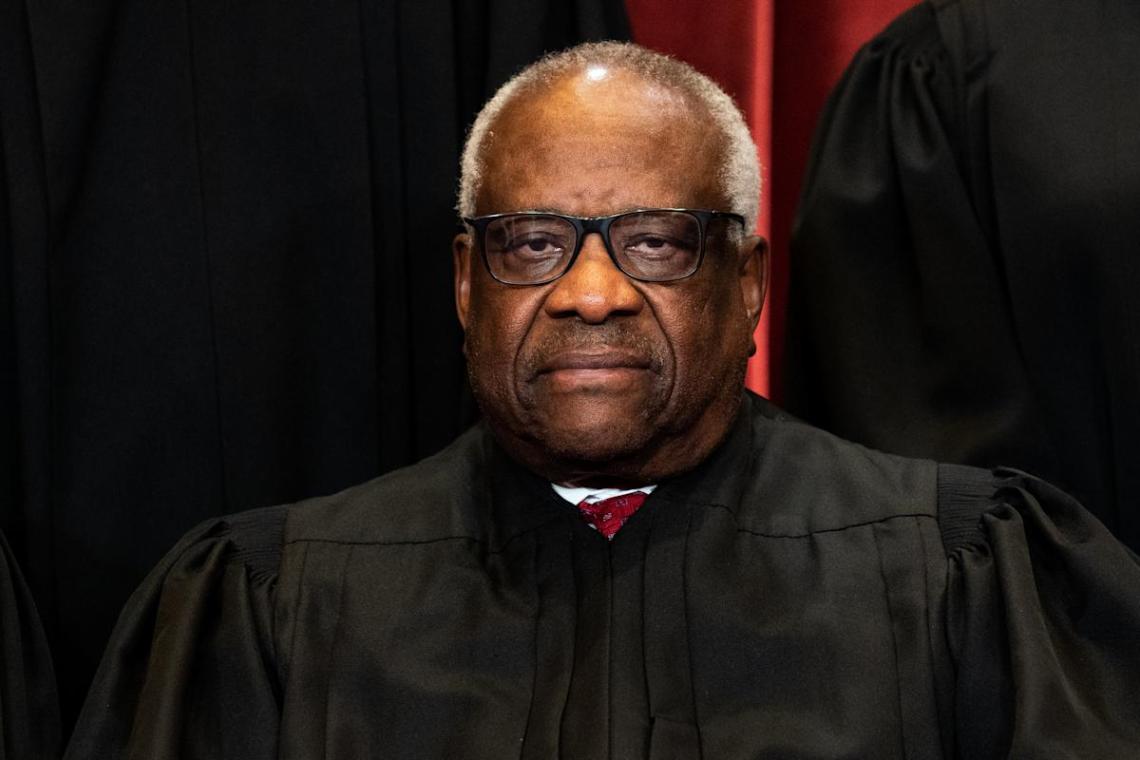A top aide to Supreme Court Justice Clarence Thomas reportedly collected Venmo payments from top lawyers with cases in front of the court that were apparently earmarked for the judge’s Christmas party.
The aide scooped undetermined amounts of cash from at least seven lawyers during the holiday season of 2019 along with memos suggesting the payments were intended for Thomas’ upcoming shindig, The Guardian reported Wednesday.
“Thomas Christmas Party”, “CT Christmas Party” and “CT Xmas party” were some of the remarks included with the payments to Rajan Vasisht, who served as a key Thomas administrative aid for two years.
The lawyers who apparently chipped into the party were all former clerks for Thomas and very prominent conservative lawyers in their own right, several of whom have argued cases in front of the court.
Thomas did not disclose the party donations on required disclosure forms and did not recuse himself from cases involving the lawyers who forked over cash. Vasisht refused to comment.
One of the lawyers who chipped in was Patrick Strawbridge, who recently argued that affirmative action in college admissions is unconstitutional. Thomas agreed with the lawyer who once helped him financially, along with a 6-3 majority of the conservative-led court.
Another was Elbert Lin, who successfully argued a case in which the court limited the Environmental Protection Agency’s ability to regulate climate-killing pollution.
Ethics experts say there is no excuse for judges or their staff to be collecting any amount of money from lawyers, especially those with potential business before courts on which they serve.
“Judges and their clerks should not collect money from lawyers for any reason,” tweeted Richard Painter, a former White House ethics lawyer. “Who does Justice Thomas think he is, a teenage kid having a bar mitzvah.”
The report marks the latest accusation of highly suspect behavior by Thomas, perhaps the farthest right-wing judge on the nine-member top court.
Thomas regularly accepted lavish vacations and gifts worth hundreds of thousands from billionaire GOP mega donor Harlan Crow, including one island-hopping jaunt to Indonesia on a mega-yacht and private plane.
He also sold the Georgian home his elderly mother lives in to Crow.
Crow paid private-school tuition for a now-grown nephew of Thomas whom the judge raised “as a son” because his biological parents had substance-abuse issues.
Thomas did not disclose any of Crow’s gifts on mandatory annual financial disclosure forms.
Thomas has claimed that he was told by unnamed fellow judges that the extravagant gifts were not “reportable” because he and Crow were also personal friends.
The revelations, and similarly reported ethics missteps by Justice Samuel Alito and liberal Justice Sonia Sotomayor, have sparked widespread calls for tougher ethics rules for Supreme Court justices and more scattered calls for Thomas to resign or be impeached.
The chairman of the Senate Judiciary Committee said Tuesday that the revelations show the justices need to bring their conduct in line with even basic ethical standards imposed on far less-influential officials.
“If they just establish the basic standards of every other branch of government, it will give us much more confidence in their integrity,” said Sen. Dick Durbin, D-Ill.
Durbin and other lawmakers plan a vote next week on legislation that would require the court to adopt an ethics code. While the measure is unlikely to pass amid Republican opposition, it sends a signal of discontent about the court.
The nation’s highest court operates without any real ethics code, instead following what Chief Justice John Roberts has referred to as a set of foundational “ethics principles and practices.”
Justices have to file annual forms disclosing gifts but there is no enforcement process for omissions. They decide on their own without interference or review on whether potential conflicts require them to recuse themselves from cases.
———




/cloudfront-us-east-1.images.arcpublishing.com/tgam/6FXDZWZUINLC3FQDJNZLPJ4SME.JPG?w=500&resize=500,330&ssl=1)

